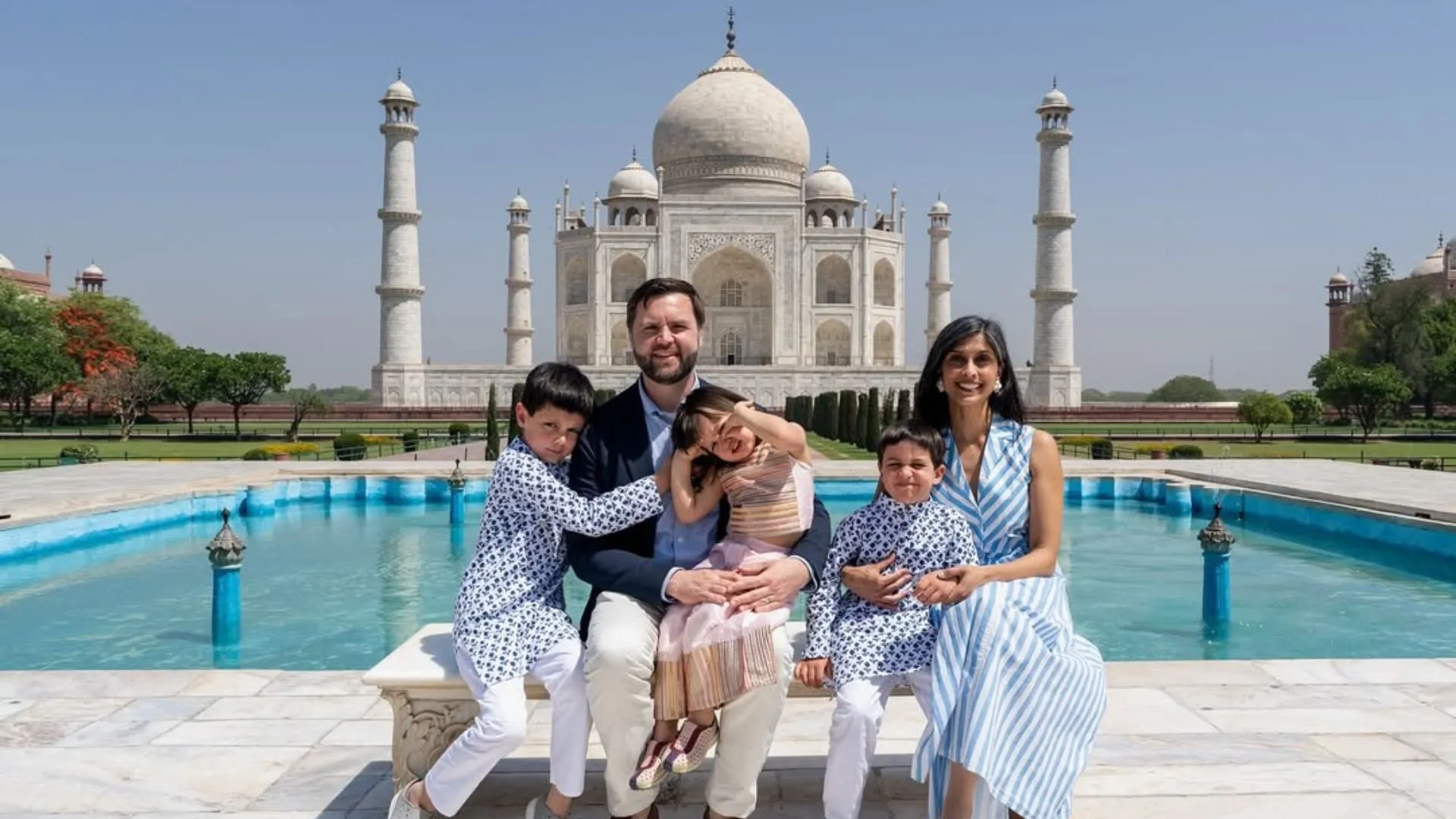James David JD Vance has rapidly become a prominent figure in American political and cultural life. From a turbulent upbringing in Appalachia to serving as the 50th Vice President of the United States under President Donald Trump, his journey is a modern-day American narrative. Central to conversations about his rise is his estimated $10 million net worth, accumulated through bestselling books, law, venture capital, and politics.
This guide explores:
Who JD Vance is—his background, career milestones, and public roles.
How he built his wealth, and why it matters.
Details of his net worth estimates and asset breakdown.
Public impact—what his wealth signifies politically and culturally.
FAQs diving into common questions about Vance’s finances and legacy.
Table of Contents
1. Who Is JD Vance?
Early Life & Family Roots
Born James Donald Bowman on August 2, 1984, in Middletown, Ohio. His name later became James David Vance after adoption changes.
Raised in a working-class family marked by parental instability and substance abuse. His maternal grandparents—“Mamaw” and “Papaw”—became his primary guardians.
His Scots-Irish Appalachian heritage strongly influenced his identity, later chronicled in Hillbilly Elegy.
Military Service & Education
Enlisted in the U.S. Marine Corps after high school; served in the Iraq War as a military journalist from 2003 to 2007.
Used GI Bill benefits to attend Ohio State University, earning a BA in Political Science and Philosophy (2009), then Yale Law School (JD, 2013).
Professional Shift: Law to Venture Capital
After graduation, Vance worked briefly as a corporate attorney and Senate aide.
Joined Mithril Capital, Peter Thiel’s VC firm, propelling his entry into Silicon Valley and politics.
Founded Narya Capital in 2020, backed by major figures including Thiel, focusing on biotech, agriculture, and digital platforms.
Hillbilly Elegy & Media Fame
Published in 2016, Hillbilly Elegy became a bestseller. By mid-2024, it sold nearly 2 million copies.
Adapted into a Netflix film in 2020, with rights reportedly sold for $45 million.
Political Career
After initially criticizing Donald Trump in 2016, Vance became a strong supporter and ran for the U.S. Senate in Ohio, winning in 2022.
Served from January 2023 to January 2025 and was chosen as Trump’s running mate in July 2024.
Inaugurated as Vice President on January 20, 2025, and appointed as Finance Chair of the RNC in March 2025.
2. How Did He Build His Wealth?
Vance’s wealth is a mix of book royalties, venture capital, real estate, and investments, detailed below:
A. Royalties from Hillbilly Elegy
Earned $55,000 in royalties (2023) and $121,000 (2022)
With nearly 2 million copies sold, the book remains a significant income stream.
B. Film & Media Rights
Netflix reportedly paid around $45 million for adaptation rights, adding to Vance’s earnings.
C. Venture Capital & Investments
Through Narya Capital, he holds stakes in biotech, farming, and digital platforms like Rumble.
Personal investment accounts: Charles Schwab holdings estimated between $2.3M–$7.7M, with ETFs, Bitcoin ($100k–$250k), Rumble ($100k–$250k).
D. Real Estate
Washington, D.C. townhouse: purchased for $590,000, now worth ~$850,000, rental income $15k–$50k annually.
Cincinnati home: $1.4M purchase, estimated value $1.8M.
Alexandria, VA property: acquired in 2023 for $1.6M, now ~$1.8M .
E. Political Salary
Vice Presidential salary: $235,100/year (up from Senate’s $174,000).
3. Estimating Net Worth
Various respected sources paint a consistent picture:
| Source | Estimated Net Worth |
|---|---|
| Forbes | ~$10 million; $4M real estate + investments + royalties |
| The Week / Investopedia | ~$10 million; FD forms estimate $4.8M–$11.3M |
| CBS News (Nov 2024) | Financial disclosures: $4.8M–$11.3M |
| Hindustan Times (Apr 2025) | Estimated $10M |
4. Why People Care About His Net Worth
A. Transparency in Politics
Public scrutiny on politicians’ finances remains high. Vance’s wealth is modest compared to peers like Trump but still notable.
B. Narrative: Rags to Riches
His rise illustrates the “American Dream”—from poverty to high office and wealth via resilience and merit (books, VC, real estate).
C. Cultural Contrast
Vance brands himself as an everyman, but his success draws attention to wealth within populism.
D. Policy Influence
Wealth across investment and real estate sectors prompts questions about conflicts of interest in policy, especially in finance and tech legislation.
E. Appeal to Voters
Vance’s journey aligns with populist messaging and resonates with both economically struggling and aspirational Americans.
5. Political & Cultural Reflection of His Wealth
Political Implications
Book revenue gives him cultural legitimacy; investment earnings align him with economic elites ⎯ blending populist narrative with elite credibility.
Transparency of political net worth is a litmus test; Vance’s public disclosures help manage trust and optics.
Cultural Symbolism
His memoir counters stereotypes about elite entitlement. The wealth details, however, spark discussion about authenticity and transformation.
6. Asset Breakdown Summary
Books & Royalties: ~$176K in royalties 2022–2023 .
Neo Film Rights: ~$45M sale for Hillbilly Elegy.
Investments:
Charles Schwab: $2.3M–$7.7M.
Bitcoin: $100k–$250k.
ETF QQQ: $500k–$1M.
Rumble stock + others: $100k–$250k.
Real Estate: ~$4M across three homes.
Salary: $235K/year as VP.
FAQs
Q1: Is JD Vance really worth $10 million?
Yes—multiple sources (Forbes, Investopedia, CBS) align around $10 million based on real estate, investments, and royalties .
Q2: Did film rights really add $45 million?
Netflix reportedly purchased rights for Hillbilly Elegy for around $45 million.
Q3: How much does he earn from politics?
Vice President salary is $235,100 annually.
Q4: Does his wealth contradict his populism?
Critics argue it shows elitism; supporters view it as self-made success, enhancing his message of upward mobility.
Q5: Are there conflict of interest concerns?
Yes—his investments and real estate holdings may raise ethical questions in policymaking.
Q6: Can his net worth grow?
Future earnings from new books, investments, and speaking engagements could increase his wealth.
Q7: How does he compare to other politicians?
He’s significantly wealthier than the average Senator, but modest compared to billionaires like Trump .
Q8: Does his wealth affect public trust?
Transparency helps, but political narratives and policy positions can influence whether people view his wealth positively or skeptically.
Conclusion
JD Vance’s story—from Appalachian adversity to national policy influencer—is emblematic of American resilience. His estimated $10 million net worth stems from a diversified portfolio of book royalties, film rights, venture capital, real estate, and political salary. This wealth not only cements his status among political elites but also fuels debate over authenticity, influence, and the intersection of populism and affluence.












